Event Recap
The Africa Center, at a COP28 event supported by Hydroma, launched a new report called “Developing Green Banking Ecosystems” by Senior Fellow Jean-Paul Mvogo. At the event, Senior Fellow Aubrey Hruby led a discussion on the development of green African finance institutions, featuring speakers with a variety of expertise:
- Heather Hanson, Managing Director of Infrastructure, Environment, and Private Sector at the Millennium Challenge Corporation
- Sara Lemniei, Chief Executive Officer at SLK Capital
- Carlos Lopes, Chairman of the Board & Chair of the Advisory Council at the African Climate Foundation
- Pierre Thiam, Co-Founder & President of Yolélé
- Audrey-Cynthia Yamadjako, Principal Climate Finance Officer at the African Development Bank Group
The event was opened by keynote speaker Seyni Nafo, chief executive officer of Hydroma USA and chair of the African Group of Negotiators (AGN) representing 54 African countries, who discussed critical developments in natural hydrogen and their impact on green energy.
Keynote by Seyni Nafo
According to Seyni Nafo, “we are losing the battle [against] climate change” because we are doing “too little, too small, and not quick enough.” Nafo, the chair of the African Group of Negotiators, highlighted the urgent need to spur solutions to the challenges that Africa faces from a changing climate. He pointed to the role of natural hydrogen, for which Hydroma drills, in the climate-change fight.
Nafo added that interest in natural hydrogen—as opposed to interest in expensive electrolyzers that produce hydrogen from water—is expanding across the globe. Projects to drill natural hydrogen are popping up across the world, he explained, including in Australia, the United States, South Korea, Indonesia, China, Oman, and beyond.
African green banking
Jean-Paul Mvogo said that Africa is at a crossroads with two potential paths: One path would ensure “the status quo remains intact” and that “Africa is one of the main victims of climate change, remaining marginalized and unable to achieve sustainable development goals.” The second path would see Africa become “a champion of green transition,” “achieve Paris Agreement commitments,” and “build green inclusive economies and move to green industrialization.”
Mvogo asserted that “financing is critical” for transitioning from the current status quo to the second path at hand. There are multiple “areas of growth for financial products” in Africa such as green bonds and debt-for-climate swaps, Aubrey Hruby added, explaining that these financial tools must be employed to address the needs of people, small and medium-sized enterprises, women, and households. Mvogo added that green financial services must also be available to the state to ensure banks are catering to all stakeholders in the green transition.
Mvogo said that questions around carbon markets must be addressed at COP28: He suggested the world may need a summit on carbon credits in Africa to develop sustainable solutions. Mvogo said that he wants to see African financing projects have better access to international green funds. As it stands now, he argued, the processes required to access funding are extremely complex and thus hamper investment. In addition, Mvogo asserted, investing in sustainability training and education will be pivotal to ensure that Africa’s green market works for the continent.
How to make finance work in Africa
Heather Hanson from the Millennium Challenge Corporation (MCC) said that MCC’s focus is on supporting “large infrastructure projects in poor but well-governed countries to reduce poverty.” She explained that MCC uses blended finance to support investment in green facilities on the continent while also pushing for institutional reforms that promote long-term sustainability. At COP28, the MCC announced the signing of the Mozambique Compact, which addresses climate vulnerability through a program that includes a new bridge, the restoration of mangroves, and a revival of the fishing industry in vulnerable areas.
According to Carlos Lopes of the African Climate Foundation (ACF), his priority is “advancing the attraction of investment to the continent.” He explained how the ACF is working to source funding from philanthropies—twenty million dollars thus far—and direct it to African solutions that address climate change. He also said that he hopes to see an “increase” in the African voice globally on issues such as carbon credits and critical minerals because that would help African negotiators, advocating for the continent, do a better job.
Sara Lemniei from SLK Capital emphasized the importance of fiscal space, particularly a liquidity and sustainability facility for the continent. The current one was designed by the UN Economic Commission for Africa in 2016 as a “market mechanism to do [repurchase agreements]”—these institutions already exist in Europe and across the world for institutional investors. Lemniei stated that such institutions could be set up as a “new vehicle dedicated to Africa allowing for the increase in liquidity of sovereign bonds.”
Audrey-Cynthia Yamadjako argued that the “lack of climate finance [is the] biggest impediment for resilient development” on the continent. Currently, there is a $2.8 trillion investment gap—but Yamadjako explained she sees this gap as an investment opportunity. Also, the “infrastructure gap is huge,” Yamadjako said, adding that it must be addressed in a resilient and climate-proof way. She noted that “African development banks are trying to mobilize, at scale, climate finance for green infrastructure.”
Pierre Thiam discussed the critical role of linking smallholder farmers to US markets. He explained how Yolélé has helped build international demand for fonio grain, a crop grown in West Africa. Thiam explained that the fonio model, which has seen demand rise and supply stabilized, could be modeled for other crops. Lopes added that, to build meaningful commercial agricultural productivity in Africa, “you need to have industrialization as a pull factor.” “Africa can feed the world” as the continent is home to 65 percent of the world’s uncultivated arable land, added Yamadjako. She asserted that climate finance at a local level can help the continent tap this potential.
Lemniei explained that credit and political risks remain the biggest worries for foreign investors on the continent. Hanson emphasized that “innovative methods to de-risk projects” in Africa are needed. Lemniei argued that the best ways to de-risk are to “strengthen [input] technology and test it,” build financial literacy, and open market access.
— Sibi Nyaoga is a young global professional with the Atlantic Council’s Africa Center.
Speaker Recaps
Stay up to date on the latest from COP28 with analysis from our experts:
Event description
Africa has immense green energy potential. If this potential is financed correctly, the continent can lead in renewable energy and serve as a model for the resources and partnerships needed to enable innovative green infrastructure in developing countries.
Featuring the launch of a new report by our Senior Fellow, Jean-Paul Mvogo, on how green banking ecosystems can better finance green development, this event will highlight African perspectives discussing how to develop a new climate financial architecture.
Join us virtually to explore Africa’s critical role in the global energy transition LIVE from the Global Decarbonization Accelerator Connect space in the COP28 Green Zone at 1700 GMT+4 | 8:00am ET on December 5th.
This event and report are part of the Africa Center’s Inclusive Climate Finance Working Group launched in April 2022 to bring together stakeholders, experts, and policymakers who are working on a just energy transition for Africa. As part of this work, the Center organizes public and private briefings on pressing topics to help raise the profile of Africa’s finance needs and to enhance public understanding about opportunities and challenges for climate investment on the continent.
Keynote Speaker
Seyni Nafo
CEO
Hydroma USA
Chair
African Group of Negotiators
Featuring
Heather Hanson
Managing Director, Infrastructure, Environment and Private Sector
Millennium Challenge Corporation
Sara Lemniei
CEO
SLK Capital
Carlos Lopes
Chairman of the Board & Chair of the Advisory Council
African Climate Foundation
Pierre Thiam
Co-Founder & President
Yolélé
Audrey-Cynthia Yamadjako
Principal Climate Finance Officer
African Development Bank Group
Report launch by
Jean-Paul Mvogo
Senior Fellow, Africa Center
Atlantic Council
Moderated by
Aubrey Hruby
Senior Fellow, Africa Center
Atlantic Council
Previous Events
Recommended content
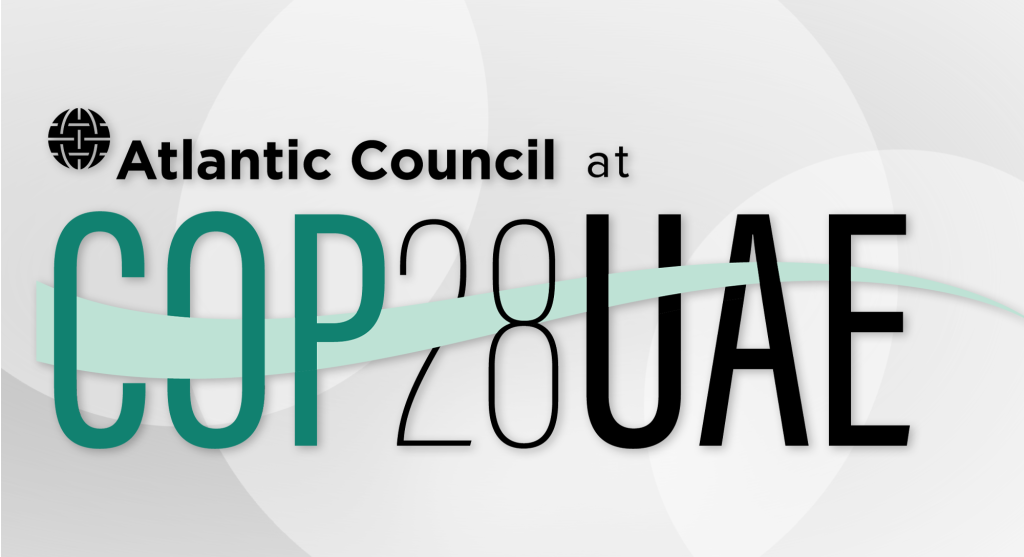
The Atlantic Council at COP28
The Atlantic Council is on the ground at the United Nations Climate Change Conference of the Parties, delivering analysis and gathering policymakers and climate leaders to map out the energy transition and how to build a climate-resilient world.
In partnership with

The Africa Center works to promote dynamic geopolitical partnerships with African states and to redirect US and European policy priorities toward strengthening security and bolstering economic growth and prosperity on the continent.
Atlantic Council TV
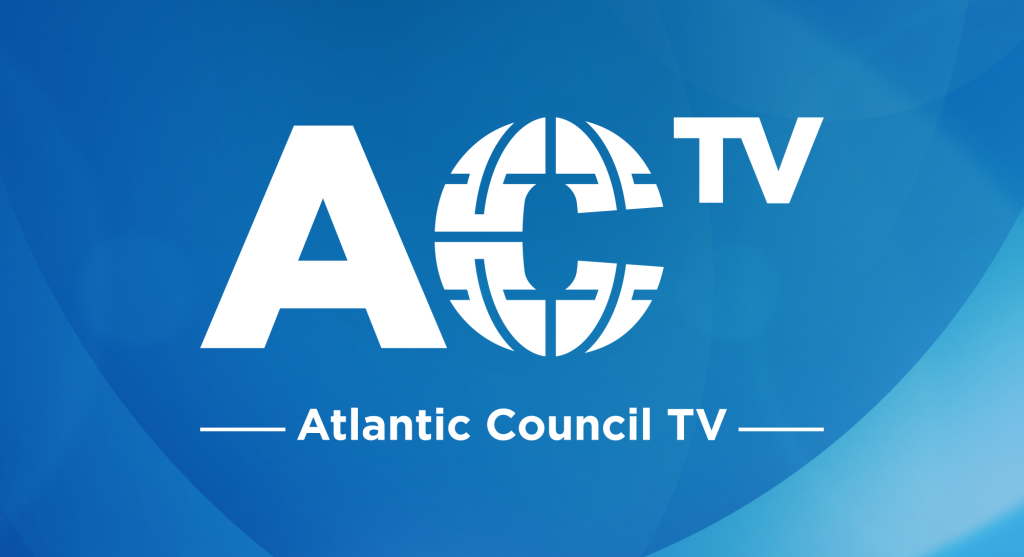
Watch this event and more content on ACTV
Follow the conversations shaping our world. Available on all major platforms.
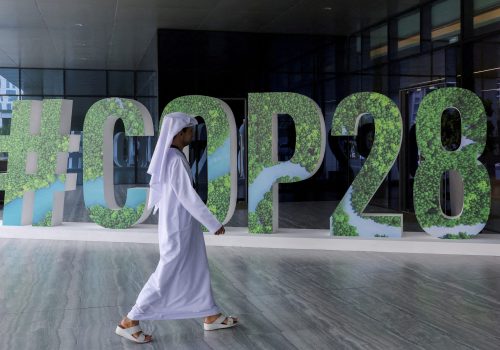
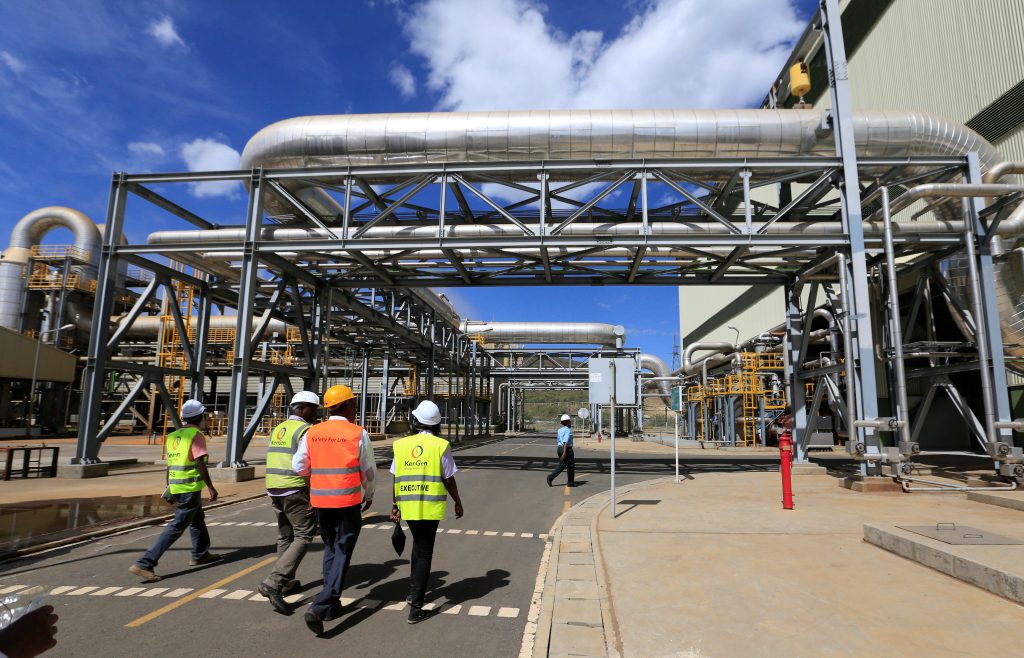
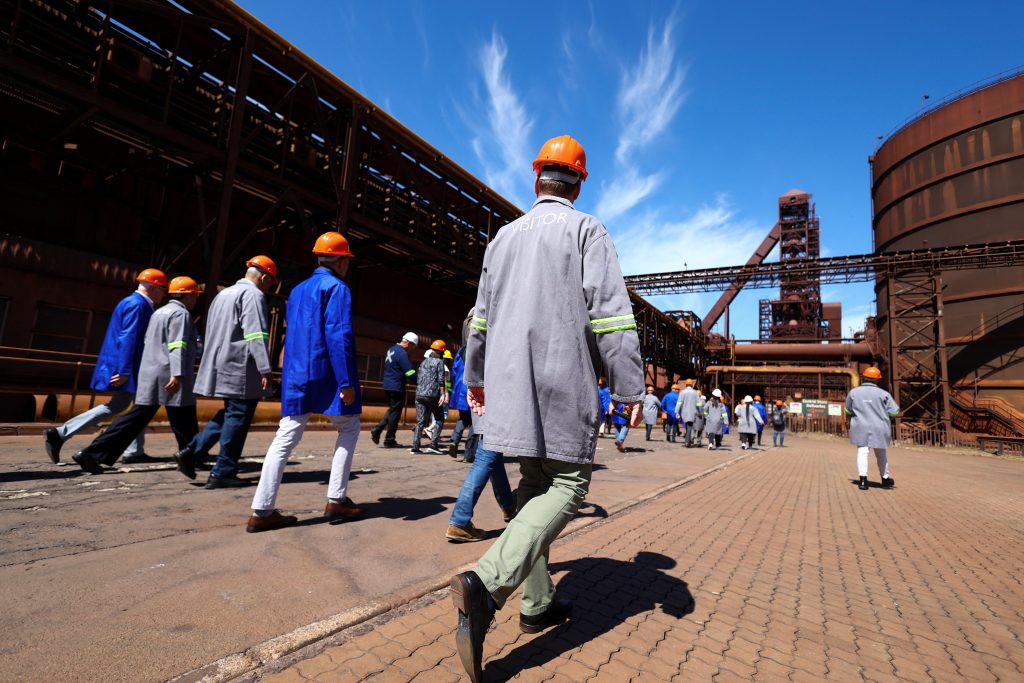
Follow the conversation on X, formerly known as Twitter, with @ACAfricaCenter and @AtlanticCouncil using #ACatCOP28